
Surviving the Ordinary: Why We Need Memoirs of Regular Lives
And 14 Books for Your How-to-Be-a-Person Memoir Shelf
I am 100 percent here for a good stranger-than-fiction memoir. Do I want to know how someone escaped a cult, pulled off a heist, or became famous after surviving a freak accident? Absolutely. Send me your tales of life-and-death adventure. But I also want to read about the lives (and deaths) of people who face nothing extraordinary at all, whose stories exemplify the challenges and realities of common, daily existence. High stakes make for great reading, but examine any life, and you’ll see the stakes get pretty high for all of us at some point, even if the only decisions we ever make are the ones billions of people have made before us and billions will make again. It’s not novelty that draws me to a memoir, at least not always.
I got to thinking about all this when I read And Now We Have Everything: On Motherhood Before I Was Ready by Meaghan O’Connell. I first heard about the book from a fellow bookseller, in vague terms—something about a young woman who finds herself pregnant by accident and decides to keep the baby. My imagination filled in the blanks: a broke college student maybe? Knocked up after a one-night-stand perhaps, destitute and alone, driven to desperate choices? Then I got the book in my hands and realized it’s a far less sensational story. O’Connell was nearly 30 when she and her fiancé—in love, stable, both employed—realized they were expecting. The pregnancy happened before they’d decided if or when to have a baby, which is a plot twist for anyone, certainly, but by no means a rarity in the human experience.
So why do we need this book?
In her search for information during the early months of pregnancy, O’Connell finds website after website comparing the size of her fetus to various fruits, but nothing that satisfies what she’s really searching for. “I knew everything there was to know except none of it particularly useful, none of it an answer to the bigger questions,” she writes. “What will it be like? How will it change me?”
O’Connell isn’t playing a birth story for shock value or sympathy here, nor is she doing the written equivalent of shoving cute baby pictures into strangers’ faces. She’s cracking open her experience, analyzing the pieces, and gluing the resulting discoveries back together with perspective and artistry. To do so is an act of generosity, and I’m grateful for it, just as I’m grateful for other memoirs about relatively mundane things: reconciling the expectations of adulthood with reality; pursuing creative or professional dreams; navigating friendships, dating, marriage, and breakups; and facing mortality in the most common, unglamorous circumstances.
Imagine we all kept a shelf stocked with sharply written, illuminating first-person accounts of these stages of life—not just the eventful beginnings and endings, but the middles, too. We’d have what amounts to an instruction guide for living. We’d know better how to survive the ordinary things that happen to all of us but which are no less daunting for their ordinariness.
That’s why we need this book, and others like it.
More than once, I’ve heard some version of this advice: If you’re a celebrity, you can sell a million books about what you had for breakfast. If you’re a nobody, you can sell a million books about your abduction by aliens. But if you’re a nobody who writes about your everyday life? Forget it. No one’s buying.
I don’t think that’s true. I hope it’s not, anyway. My memoir-in-essays will be published next year, and not only do I have zero in the way of celebrity name recognition, but my book features nary a kidnapping or explosion. When I start to worry, What if people don’t want to read regular real-life stories?, I remind myself that I see evidence every day in the bookstore where I work that people do. Although the word “relatable” can really set eyes to rolling in certain literary circles, relatability has tremendous value to readers. People come in all the time seeking not just an entertaining read, but (sorry, here comes that word) a relatable one. They pull down books in which they find some version of themselves as they are now or were in the past or hope to be one day. They start out seeing themselves in others; then they see the other in themselves; then they’re able to see themselves and their own futures differently. I’d say these books transform people, but it’s more that the books help people along while they are already transforming.
So give me jaw-dropping true stories, yes indeed, but also give me life stories that leave my jaw alone and move my mind and heart instead, toward a better understanding of myself, of friends and strangers, and of the world we live in every day. What a gift that understanding is when we share it with each other.
The books I’d put on everyone’s how-to-be-a-person memoir shelf:
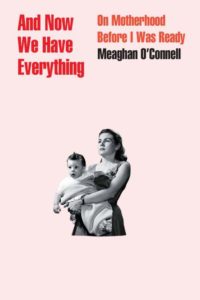
Expecting a baby:
Meaghan O’Connell, And Now We Have Everything: On Motherhood Before I Was Ready
While you’re at it, throw in Operating Instructions by Anne Lamott, and on infertility, The Art of Waiting by Belle Boggs.
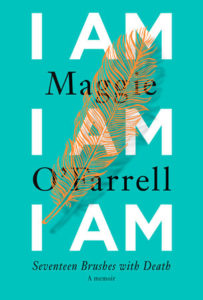
Sensing the fragility of life and living it anyway:
Maggie O’Farrell, I Am, I Am, I Am
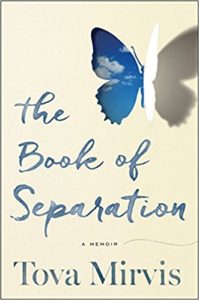
Breaking up with a spouse, a religion, and/or a whole way of life:
Tova Mirvis, The Book of Separation
Plus its predecessors: Eat. Pray. Love. by Elizabeth Gilbert and Wild by Cheryl Strayed, although they’re definitely at the more adventurous end of the everyday-lives spectrum.
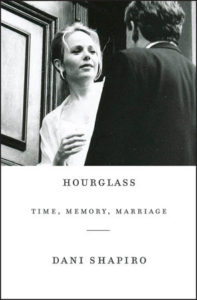
Staying in a marriage that’s no longer new:
Dani Shapiro, Hourglass
And for an edgier take: Love and Trouble by Claire Dederer.
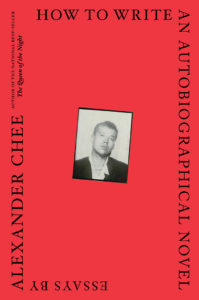
Growing into your true identity as a creative, sexual, emotional, professional being:
Alexander Chee, How to Write an Autobiographical Novel
(available April 17)
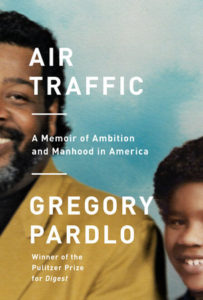
Understanding how your parents’ decisions did (and didn’t) make you who you are:
Gregory Pardlo, Air Traffic
On that note, add I’m Supposed to Protect You From All This by Nadja Spiegelman, and go ahead and pre-order All You Can Ever Know by Nicole Chung, coming in October 2018.
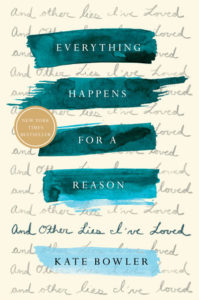
Facing terminal illness and death:
Kate Bowler, Everything Happens for a Reason: And Other Lies I’ve Loved
See also: When Breath Becomes Air by Paul Kalanithi, The Bright Hour by Nina Riggs, and Dying: A Memoir by Cory Taylor.
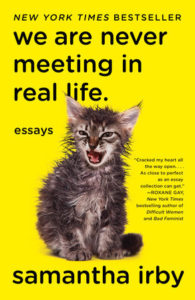
Laughing at the indignities and insecurities life throws your way:
Samantha Irby, We Are Never Meeting in Real Life
Shelve it next to Let’s Pretend This Never Happened by Jenny Lawson and Hyperbole and a Half by Allie Brosh.
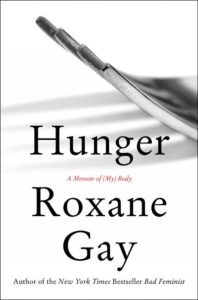
Wrestling with body image:
Roxane Gay, Hunger
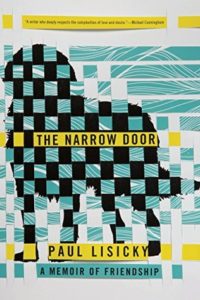
Having (and losing) a best friend:
Paul Lisicky, The Narrow Door
Pair it with Truth & Beauty by Ann Patchett.
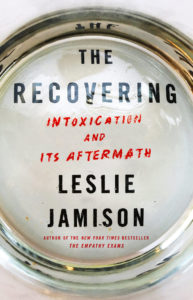
Facing addiction and recovery:
Leslie Jamison, The Recovering: Intoxication and Its Aftermath
Also include Blackout by Sarah Hepola, Lit by Mary Karr, and Carry On, Warrior by Glennon Doyle.
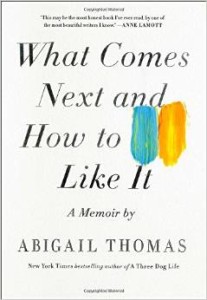
Reckoning with midlife and looking forward to what’s ahead:
Abigail Thomas, What Comes Next and How to Like It
And particularly for soon-to-be empty-nesters: Magical Journey by Katrina Kenison.
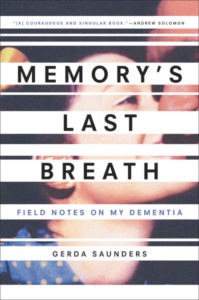
Aging and dementia (in yourself or your parents):
Gerda Saunders, Memory’s Last Breath: Field Notes on My Dementia
See also: Can’t We Talk About Something More Pleasant by Roz Chast and Where the Light Gets In by Kimberly Williams-Paisley.
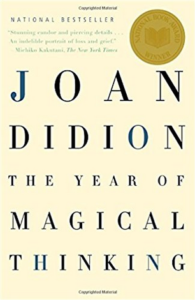
Processing grief — just a few of many:
Joan Didion, The Year of Magical Thinking
(loss of a spouse)
Elizabeth Alexander, The Light of the World (loss of a spouse)
Meghan O’Rourke, The Long Goodbye (loss of a mother)
Helen Macdonald, H is For Hawk (loss of a father)
Jesmyn Ward, Men We Reaped (loss of a sibling)
Elizabeth McCracken, An Exact Replica of a Figment of My Imagination (loss of an unborn baby)
This list could go on forever. I’ll stop here. You make your own.
Mary Laura Philpott
Mary Laura Philpott is the author of a forthcoming memoir-in-essays, I Miss You When I Blink (2019), as well as the illustrated humor collection, Penguins with People Problems. She also runs Musing, the online magazine of Parnassus Books, and co-hosts A Word on Words for Nashville Public Television. She’s on Twitter @marylauraph.



















